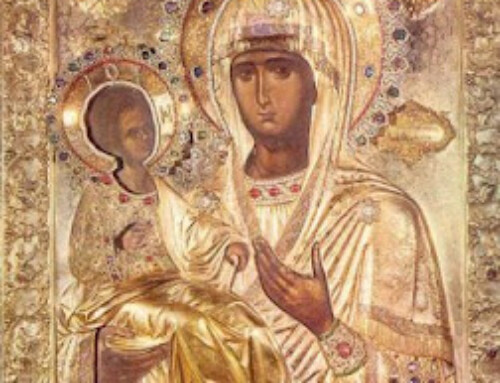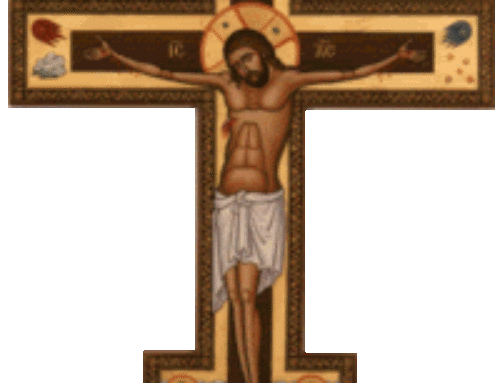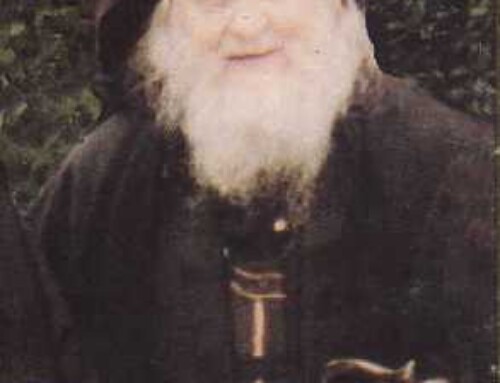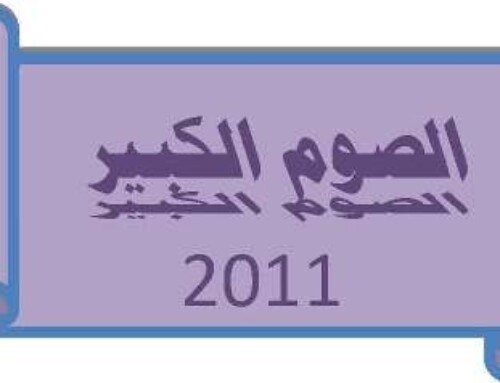Word Magazine April 1987 Page 14-15
THE LANGUAGE OF THE LITURGY
By Guthrie E. Janssen
Orthodoxy in North America is at a point of crisis with respect to the language of the Liturgy.
An ancient rule holds that the Liturgy must be served in the language of the people. For most Orthodox churches in North America this means English. One would think that a uniform text of the Divine Liturgy in good English could easily be written, and readily adopted by all Orthodox jurisdictions. Unfortunately, this is proving to be an immensely difficult task.
Orthodoxy in North America today has clearly been called by God to be zealously evangelical. And most North American converts are going to feel themselves not Greek, nor Antiochian nor OCA, but simply Orthodox. Thus the situation demands a uniform liturgical text. Moreover, the English must be the best possible. Educated, literate, sophisticated American converts who will constitute the “new blood” of Orthodoxy will not put up with language that is inept or ungrammatical, or lacking in euphony and felicitous expression. Liturgy is for the ear, not the eye, and it must sound right. It must be so written as to make the educated worshipper feel and experience its inherent beauty and exaltation.
I have at hand six English renditions of the Liturgy now in use, or proposed, and there are more. For fifty years I have been a writer and teacher of English, and as I review these translations that I have I would grade all but one of them no more than D minus. They fall far short of communicating the experience of the divine-human relationship or the heavenly exaltation that they ought to convey. Several amount to little more than words stodgily strung together. They grate on the ear like fingernails on a slate and afford all the spiritual uplift of a recital of stock prices in a falling market. Some are simply clumsy attempts at literal translation of the Greek original by persons with little or no feeling for the vast poetic resources of the English language, its capability of conveying subtleties, rhythms and majestic cadences — in a word, nobility.
I stress the importance of experiencing the glory inherent in the Liturgy. The Liturgy is not a spectator event. It is an exalted occasion into which we enter with our entire being. The priest is not just our paid agent before God. He is our leader in prayers that we appropriate as our own by participating with all our heart and soul and mind. Liturgy means, literally, work of the people. Yet how can we participate in something that is cheap, that falls wretchedly short of expressing our aspirations toward God and our response to his mighty acts for us? Liturgy is intended to carry us to the very gates of heaven. The language of the kitchen or of commerce will not do it. This is why we have song and chant, making exquisitely lovely sound; it elevates us toward heaven. So must the spoken words.
Shortcomings of the Present Translations
I have four specific objections to the new translations: ineptitude in rendering the ancient Greek; some downright bad grammar; infelicities of pace and cadence that subvert good oral communication; and the casual, not to say impudent, forms of address to God. Let me explain.
An example of ineptitude appears in the doxology chanted after the prayer of the third antiphon and elsewhere (I give it as it appears in the Antiochian Service Book): “. . .unto thee we ascribe glory. . . This is good. It certainly suggests that the source of glory is God, not ourselves. The new translations, however, read,” . . . we send up glory to You . . . “ Good heavens, how? This may be a literal translation of the original Greek, but I cannot believe the Fathers meant to evoke the image (inevitable for us today) of a celestial rocket ship loading on glory for dispatch to God. A more apt expression must be found.
As for bad grammar, the most blatant example occurs at the very beginning. The priest is made to say, “O Heavenly King, O Comforter, the Spirit of truth, Who is in all places . . .“ The is is simply wrong. The Antiochian uses art (the archaic form of are), and this is correct, because the context calls for the second person form of the copulative verb. The Spirit is being directly addressed. If I am addressing a close friend, for example, somewhat formally but enthusiastically (as we do God in the Liturgy), I will say, “Dearest friend, who mean so much to me. .“ The second person (you or thou) is implied, so I must use mean, the second person form of the verb, rather than means, the third person form. To say, “Dearest friend, who means. . . “ would make no sense. Neither does the is at this point in the Liturgy. Likewise, in the Lord’s Prayer we say, correctly, “Our Father, who art
The same opening paragraph of the Call to Worship furnishes examples of infelicitous style, acceptable to the eye but awkward in spoken utterance. The Antiochian service reads, “ . . . cleanse us from every stain and save our souls, O gracious Lord.” The new translations read,” . . . cleanse us from every stain and save our souls, O Good One.”
This is inept, to say the least. “O Good One” may be the literal rendition of the Greek, but one cannot render a translation meant for oral use without taking into account more than the literal meaning. The translation must read smoothly, have a “ring” to it that is consistent with the occasion and evoke no false associations. In the American idiom a common association with “good one” is a listener’s remark after hearing a joke, when he slaps his knee and says, “Oh, that’s a good one!” This is by no means an association one wishes to suggest in the Liturgy. Moreover, when the priest says, “O Good One,” he is forced to chop off the sense of the paragraph much too abruptly. Instead of carrying out and summing up the spirit of what has gone before, it introduces a different spirit. “O gracious Lord” preserves the sense and spirit of the paragraph, rolls nicely off the tongue and strikes no jarring note.
Reducing God to the Sphere of the Ordinary
By far the worst aspect of the new translations is the elimination of thee and thou in addressing God, and the substitution of the common you and your. In public, corporate worship, such as the Liturgy, to speak to God using the same form of address as to the family dog or a disobedient child is utterly wrong. It reduces God, and the entire Liturgy, to the level of the ordinary. This of course is consistent with the spirit of our age, which is reductionist, seeking to cut down everything that is inherently glorious and exalted to the level of the mundane and everyday. This has happened in the Episcopal and Roman liturgies where the language today sounds no better than table talk and the serving of the Liturgy resembles nothing so much as a cooking class demonstration on TV. It affords no uplift toward heaven whatsoever. The ordinariness of it is vinegar and gall to the soul of someone sensitive to the truth and purpose of the Liturgy. I hate seeing this “trendy” spirit come into Orthodoxy. It is the same spirit that drove me and my family (and thousands of others) from the Episcopal Church.
A few years ago the late Fr. Alexander Schmemann and St. Vladimir’s Seminary Choir made a recording of the Liturgy that was a model of perfection, so evocative of transcendent love as to move one to tears. The language was thee and thou. The other day I listened to it again, substituting in my mind you and your. It killed the thing utterly. It sounded downright blasphemous. Why does Orthodoxy wish to copy the obvious failures of other branches of Christendom?
The argument for abandoning thee and thou and thine is of course that these are archaic forms, and the Liturgy must be in the language of the people. This is a total misconception. The Liturgy must be in language the people understand, not necessarily the language they use in the kitchen, and everyone who knows English can understand thee and thou.
If the argument for getting rid of the “archaic” is valid, then the Liturgy and the serving of it will have to be changed beyond recognition. For by its very nature the Liturgy is archaic, invoking as it does the entire worshipping experience of the Church back to its very roots. To rid the Liturgy of the archaic, one would have to abandon the history of the Church and start all over again with something “modern.”
By all means let us be consistent. If we want to be rid of the archaic, then let us start with what is most archaic in the Liturgy, namely the vestments. Why should a priest today wear vestments derived from the court of the Byzantine emperors? Away with thee and thou and away with antique vestments! Let us have modern dress! That will show we are up to date and the Liturgy will then be truly on the same ordinary plane as the everyday life of the people. After all, it is not the outward form that counts, is it? A duly ordained priest in Hawaiian shirt and Bermuda shorts can serve just as valid a Eucharist as one in archaic vestments, so why not? It would be consistent with worship of the cult of contemporaneity so prevalent in our time.
The reason why not is of course that the Divine Liturgy is a paean of love of the highest order in the universe. It also incorporates two millennia of the living tradition and experience of the Church. It demands of us the finest and highest expression of which we are capable. But these standards have been all but eliminated in American culture today. The exhibition of love has been reduced to a public smooch. Everything is familiarity (which inevitably breeds contempt), and love music has become the maudlin strumming of a guitar to sentimental words, all too common now in Roman and Episcopal liturgical services. To worship God in spirit and in truth requires us to buck this pejorative trend.
Just as Hawaiian shirts and Bermuda shorts on a priest serving the Eucharist demean the service and all that it is meant to represent, so also does substitution of the familiar, ordinary you and your for thee and thou in addressing God. That is not to say that all the archaic, Elizabethan English of the Antiochian Service Book is justified. Our book is a splendid translation, inspired by the noble language of the 1928 Episcopal Book of Common Prayer, but most of the archaic forms can be removed without loss, leaving only the dignified (in the root sense of worthy) forms of address to God and to Mary, out of respect and honor.
In practice, what we are getting today in liturgies with the “new” language is an inconsistent, not to say intolerable, mixture. I have heard choirs solemnly chant, “O Lord, save your people and bless thine inheritance. “It was hard to suppress a snicker. This sort of thing is not conducive to worship. From time to time even the priest lapses into thee and thou, and of course when it comes to the Lord’s Prayer the people universally say, “Our Father who art in heaven, hallowed by thy name. . . “ Why here and not elsewhere?
I believe the Holy Spirit is telling us something. I believe the Spirit is saying, “Preserve the original dignity of the Liturgy. Do not succumb to modern reductionist trends with their enslavement to the ordinary and the contemporaneous, which will quickly pass away. Preserve the ancient in a style of dignity and honor. The pejorative trend is an abomination. Accord God worth and honor by addressing him formally. Do not presume to confront him with modern barbarities.”
Guthrie E. Janssen is a member of St. George Church of Port1and, Oregon. He has authored a new book.





